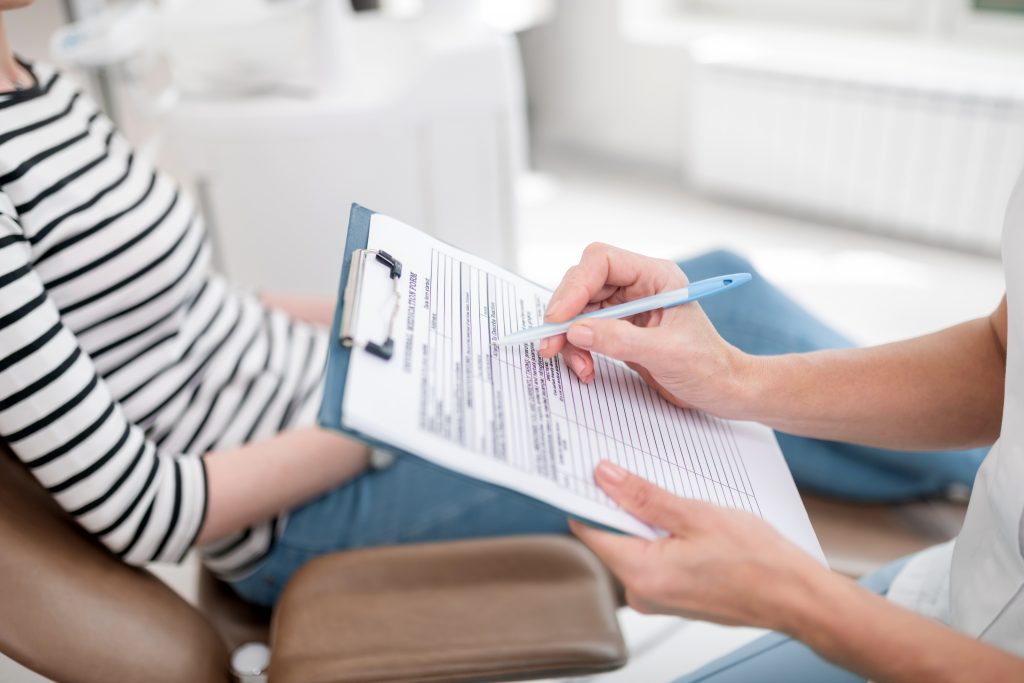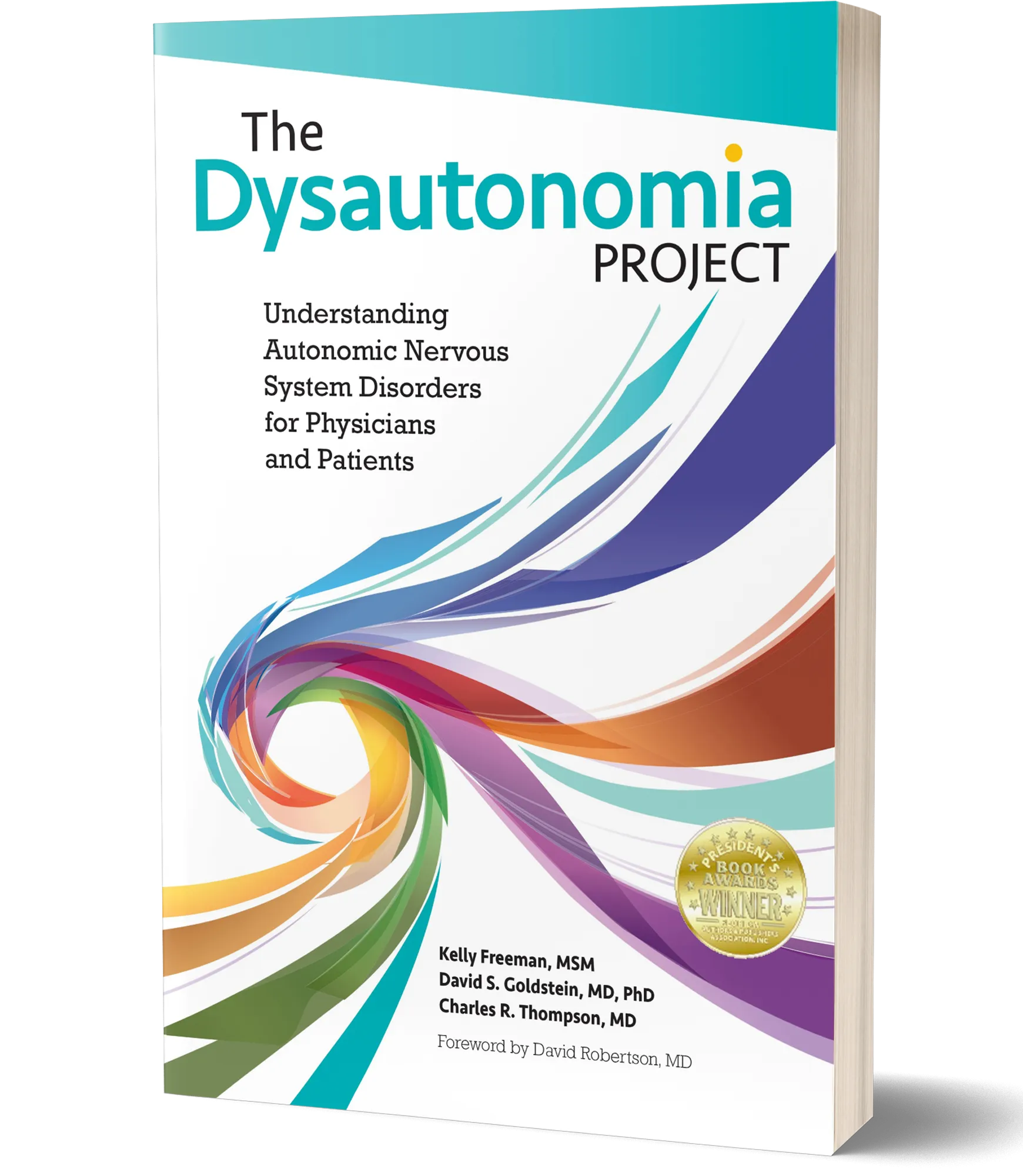When you’re suffering with multiple symptoms and feeling misunderstood by providers who don’t understand dysautonomia, you may feel like there’s little you can do. Preparing for your appointments is one thing you can do to take charge of your healthcare and partner with your provider as you find treatments that address your symptoms and improve your quality of life. This list of things to do is relevant for the undiagnosed, recently diagnosed, and experienced patient.
Be informed and take advantage of the resources on this site
Learn as much as you can about dysautonomia. We believe that education is the number one treatment because it empowers patients and doctors and allows patients to become their own advocates. We recommend ordering the book, The Dysautonomia Project. This is our definitive guide on dysautonomia. We have numerous articles in our patient learning center. Parts of the book are included in these articles, so you can start learning today.
Autonomic Disorders Assessment:
Take advantage of our free educational assessment. It can be used by undiagnosed patients who suspect they may have an autonomic disorder or those who have already been diagnosed with an autonomic disorder. This assessment allows undiagnosed patients to screen their symptoms to determine if they have a higher or lower risk for an autonomic disorder. Patients can print a report that summarizes their symptoms and take it to their provider. We encourage individuals to repeat this assessment in the future to identify trends in health by saving a copy of this assessment report.
Take a copy of the book to your provider
If your provider does not understand dysautonomia or has just started learning about it, we encourage you to take a copy of the book to them. The book is unique in that each topic covered in the book addresses the patient’s perspective/experience and the provider’s perspective. It’s written by a patient and physicians. If your provider has experience treating dysautonomia patients, consider yourself fortunate, but don’t rule out taking a book to them. They may have a partner in their practice or a staff member that could benefit.
Keep a log of your symptoms
If you’re not already tracking your symptoms, it’s important to start now. We have an entire article devoted to this topic. Doctors are scientists. You can be one too by collecting data that will help your doctor better understand your symptoms (when they occur, how often, and under what circumstances).
For example:
8:00 a.m., began to stand up, noticed X….
12:30 pm, exercising, noticed Y, pain level of 6….
5:00 pm, ate Z, noticed…
You may want to track what you eat and drink and any associated symptoms. This history will be helpful in determining patterns and dysregulation.

Watch our Orthostatic Vitals Video and download the PDFs
Watch the Orthostatic Vitals Video on this site and download the orthostatic vitals form. Give a copy of the ortho vitals form to your provider.
Complete the Autonomic Disorders Assessment and print your results. Make a copy for your provider and share the results. This will help you think through and summarize your symptoms and history, so you have the most thorough information to share with the provider.
Gather relevant medical records and list medications
Bring lab/test results from other appointments, a list of the medicines you’re taking (dosages, frequency, prescribing physician) and any doctor or hospital visit notes you may have.
We highly recommend creating a medical records binder to store important information you need for your appointments, hospital visits, and even while traveling.
Prepare a list of questions
Have a list of questions for the provider ready. If you have brain fog and need help with note taking while you’re at the appointment, bring a friend or family member with you. Here are a few questions we have found helpful for the undiagnosed patient or if you’re still looking for a provider to treat you.
Do you have any patients with dysautonomia?
What experience have you had diagnosing dysautonomia?
Are you aware of any current research?
Do you do orthostatic vitals? Do have a tilt table? If not, to whom can you refer me for a tilt table test?
What labs should I be asking for – autoimmune markers? Vitamin deficiencies?
Do you know specialists who are familiar with dysautonomia?
Consider the time of day when you schedule your appointment
Ask for the first appointment in the morning, first appointment right after lunch, or last appointment of the day. The first appointment often means less waiting time in the lobby, and the last appointment might make it easier for the doctor to take more time with you. Be prepared. This might be a long appointment. Bring salty snacks and fluids. Bring a light jacket if your body doesn’t regulate temperature well.
Get to know the office staff and strive to build a good relationship with them too.
Recognize that healthcare professionals have limited time and show appreciation if they spend extra time with you.
Have a trusted and supportive family member or friend go with you.
Related Articles and Videos:
Keeping Track of Your Medical Records
Autonomic Disorders Assessment for Undiagnosed Patients
Autonomic Disorders Assessment for Diagnosed Patients































